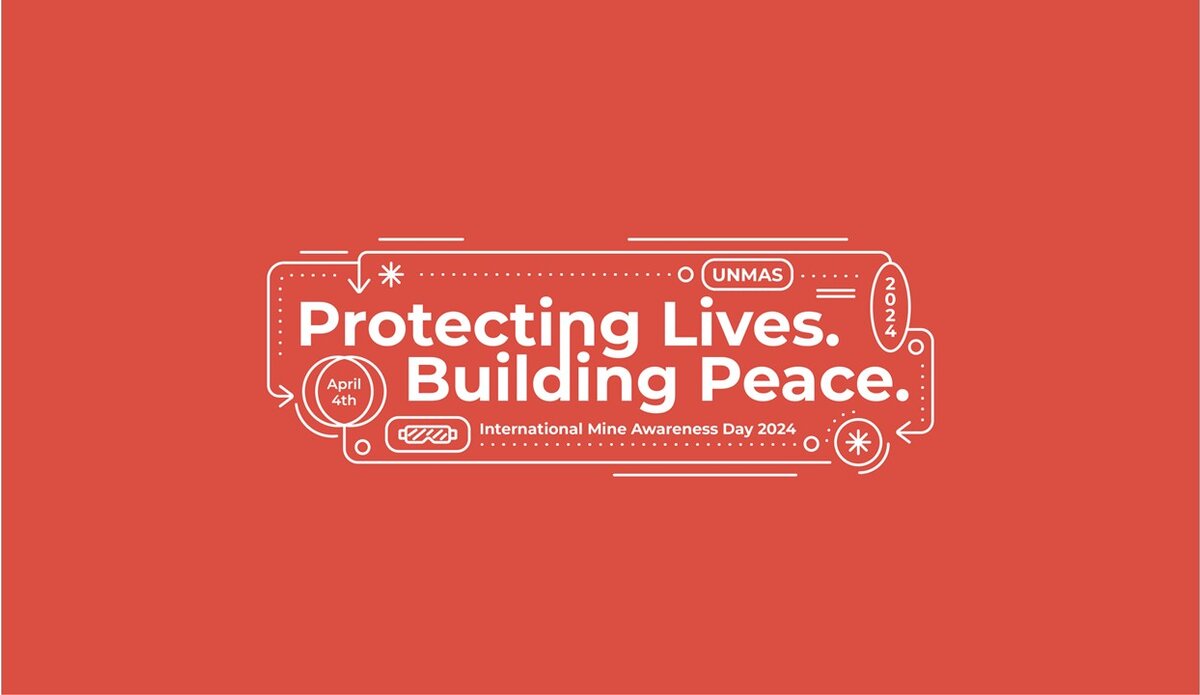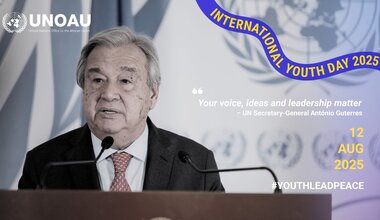SRSG PARFAIT ONANGA-ANYANGA | MESSAGE ON THE INTERNATIONAL DAY FOR MINE AWARENESS AND ASSISTANCE IN MINE ACTION ON “PROTECTING LIVES, BUILDING PEACE”
SPECIAL REPRESENTATIVE TO THE secretary-general TO THE AFRICAN UNION AND HEAD OF UNOAU, Parfait Onanga-Anyanga
--
MESSAGE ON THE INTERNATIONAL DAY FOR MINE AWARENESS AND ASSISTANCE IN MINE ACTION ON “PROTECTING LIVES, BUILDING PEACE”
4th April 2024
Today, as we gather to commemorate the International Day for Mine Awareness and Assistance in Mine Action, we are reminded of the profound significance of our collective efforts to protecting lives and building peace around the world. This day serves as a poignant reminder of the devastating impact of landmines, explosive weapons including the increasing use of improvised explosive devices (IEDs), which disproportionality impact innocent civilians. Globally, 2023 saw by far the most incidents recorded in one year, with a 69% increase in explosive weapon incidents, which resulted in a 63% increase in civilian casualties and 122% increase in civilian deaths, compared to 2022.
Landmines and other explosive hazards pose a persistent threat to civilians, robbing them of their sense of security and impeding the path to peace and prosperity. Every detonation not only claims lives but also inflicts long-lasting physical and psychological scars on survivors, leaving communities fractured and vulnerable. Explosives have remained a weapon of choice for non-state actors, including terrorist groups, trying to undermine legitimate governments in some of our countries. The indiscriminate use of these weapons has resulted in the death and maiming of men and women who have put the lives on the line in the service of humanity. For example, in 2022 the UN Mine Action Service reported that IED attacks killed 16 UN peacekeepers and injured 72. Similarly, many deaths and injuries in AU peace support operations are linked to the effects of IEDs.
However, amid these challenges, there is hope. Through coordinated efforts and international cooperation, significant strides have been made in mine action, resulting in countless lives saved and communities restored. For example, in response to the dire humanitarian situation in Ethiopia, in 2023, UNMAS conducted rapid explosive risk assessments along humanitarian corridors in Afar, Amhara, and Tigray regions assessing 48 suspect areas marking 426 items of Explosive Ordnance and Small Arms Ammunition. UN funded Explosive Ordnance Risk Education (EORE) teams also reached 27,871 beneficiaries in Ethiopia contributing to increased safety and security for local communities and aid workers.
In the Democratic Republic of the Congo (DRC), the United Nations supported Mine Action strategy development and capacity building. For example, since 2016 UNMAS has supported the United Nations Organization Stabilization Mission in the Democratic Republic of the Congo (MONUSCO) in its mandate, by ensuring the Protection of Civilians and supporting the stabilization and strengthening of state institutions. This included the removal of over 2 million explosive and Small Arms Ammunition items, benefiting over 1 million civilians who now have safe access to key infrastructures and arable land.
As we reflect on the progress achieved thus far, we must also acknowledge the evolving nature of the threat landscape. In order to address the proliferation of IEDs we need a holistic approach that encompasses not only the clearance of explosive remnants but also preventive measures, capacity-building initiatives, and robust strategies to address the root causes of conflict and instability.
Moreover, we must redouble our efforts to support survivors, providing them with the necessary medical care, rehabilitation services, and socio-economic opportunities to rebuild their lives with dignity and resilience. To this end we encourage Governments to sign and accede to the African Union protocol on the Rights of Persons with Disabilities, in order to bring it into force in 2024.
In the face of such indiscriminate weapons, we reaffirm our unwavering commitment to mine action and the removal of these deadly remnants of war. There’s no other time other than now to reinvigorate our efforts at eradicating this menace through advocacy and other pragmatic measures.
Today, let us recommit ourselves to the noble cause of mine action, recognizing that every landmine cleared and every IED destroyed brings us one step closer to a safer, more secure world for all. Together, let us stand in solidarity with affected communities, reaffirming our shared humanity and our collective resolve to leave no one behind.
 UN
UN






